Children’s Internet Protection Act
What is the freedom of speech? To what extent is speech protected?
The freedom of speech is one of the fundamental freedoms or “civil rights” guaranteed to citizens by the United States Constitution. It is one of the freedoms of expression. The “inalienable right” to free speech is quite extensive. It includes those statements or writings that most people would probably think are offensive or improper. The right to free speech is protected by the First Amendment to the Constitution.
Use of Internet in public libraries brings questions of free speech protection
Due to the rapid growth of the Internet, as well as its ease of use and accessibility, free speech issues have received much attention. Among the topics of discussion is the relatively easy access that the Internet can provide to pornographic or objectionable documents and images.
For many people, the Internet offers a research source that provides often-valuable information. Some people–including children–gain access to the Internet by using computers that are provided free of charge at public libraries. Many parents have expressed concern that their children can use public computers to readily access harmful information, such as pornography, over the Internet.
Children’s Internet Protection Act upheld as constitutional
In response to such concerns, President Clinton signed the Children’s Internet Protection Act (CIPA) in 2000. CIPA requires a public library to use “filtering” or “blocking” software on computers that are available to the public. A library that fails to do so would lose certain federal funds.
Under CIPA, library patrons who are 17 years of age or older can have the filtering software disabled on request. Patrons who are 16 years of age or younger cannot have the blocking removed under any circumstances.
The law has not been without controversy. In fact, a national library association and a civil liberties organization both filed federal lawsuits in which they challenged CIPA. In 2003, the United States Supreme Court ruled that CIPA did not violate the First Amendment’s protections of the freedom of speech. Specifically, the Court stated that mandatory filtering of web sites for minor patrons of public libraries does not violate the First Amendment.
Free speech advocates question effectiveness of filtering software
Not all web filtering software programs use the same criteria to determine which web sites should be “blocked.” For example, one software company may block only a handful of categories of information, such as hate speech or sexual images, while another may block dozens. Each software company sets its own methods of searching for sites to block. One company may use a person to search for sites, while another may use an automated search tool to select objectionable sites.
Critics of the effectiveness of web filtering programs claim that some sites that are generally considered to be acceptable are actually blocked by some software programs. For instance, a web site that provides useful medical information on breast cancer may be filtered because the word “breast” appears in the web pages. Some sources claim that only a very few of the available filtering programs were effectively able to block certain inappropriate web sites.
Copyright 2012 LexisNexis, a division of Reed Elsevier Inc.
